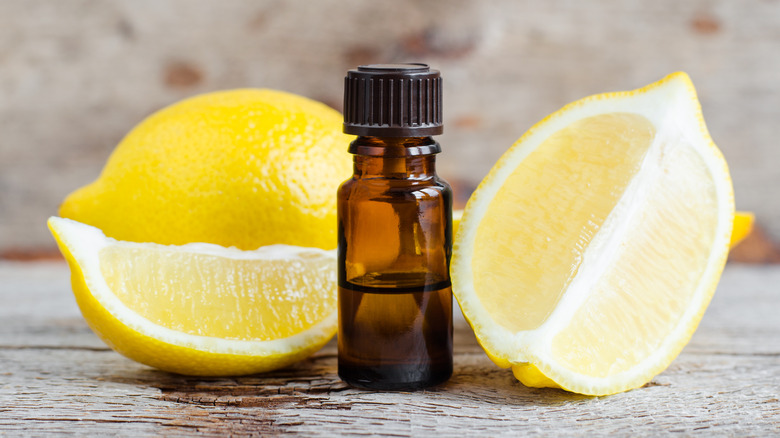What Exactly Goes Into Starbucks' Lemonade Concentrate?
Starbucks origin story is based on selling roasted coffee. Now, almost three-quarters of the drinks Starbucks serves across the US are on ice. There are many reasons Starbucks customers might be leaning this way, but iced drink sales don't dip in colder months. For this reason, maybe it's just the quality of the iced teas, refreshers, and lemonade.
The lemonade at Starbucks is especially popular. Its iterations are almost limitless and rank very high on the ultimate ranking of Starbucks iced drinks. If lemonade is your thing, Oh, How Civilized offers a long list of menu options, and tactics to get more of it into your Starbucks order. These options include having it steamed and added to hot teas. The outlet also recommends adding a splash of lemonade to cold brew to mimic an espresso Romano, or, if you're feeling especially adventurous, you might also try some secret menu options.
For those of you who want to mimic these drinks at home, you can't simply buy a bottle of Starbucks lemonade. Minute Maid and Simply Lemonade are considered good options, but making a batch of lemonade is about as easy as it gets. You only need lemon juice, sugar, and water.
Lemon oil is the key to Starbucks' lemonade concentrate
A simple lemonade recipe is something everyone should do once in a while to remember just how amazing great lemonade can be. It seems like the key to Starbucks' lemonade is that it doesn't deviate too far from that tried and true recipe. Starbucks' lemonade ingredients are just filtered water, lemon juice, sugar, lemon oil, and ice. In fact, the biggest upgrade from homemade lemonade is that of Starbucks lemonade's fourth ingredient, lemon oil.
Even if that sounds new to you, if you've ever added lemon zest to a recipe, you're familiar with the huge impact a dose of lemon oil can bring to your food. Lemon zest is the outermost, yellow, skin of the fruit, and it's where the essential oils reside that give lemon its distinct aroma, and the depth of flavor that juice, alone, just doesn't have. Lemon oil is totally natural and is used as a health remedy, to provide scent to cleaning supplies, and as an ingredient in food. It's steamed, or pressed, from lemon skin.
You can buy bottles of lemon oil that have been steamed, or pressed from lemon zest. These are most often used in baking but shouldn't be confused with lemon extract. Extracts use alcohol to pull the oils from something like lemon zest. Lemon oil hasn't been diluted with alcohol, so it's even more potent than lemon extract.
Make your own version of Starbucks' lemonade concentrate
So, the key to making your own Starbucks' style lemonade is to buy a bottle of lemon oil? That's certainly an option, but there's another way to introduce fresh lemon oil to your own lemonade concentrate. America's Test Kitchen gives homemade lemonade the cocktail treatment by crushing (or, muddling) lemon zest with sugar. That smashing releases the zest's oils into the resulting mixture. After steeping with hot water, and straining, this can be kept in the fridge for fresh lemonade at any time. Equal proportions of the lemonade and water over ice are recommended, but adjust that ratio to suit your own tastes.
This super fresh lemonade is the perfect starting point for becoming your own, at-home Starbucks barista. Spoon University has a barista on hand to spell out a green tea lemonade. Or, use the Oh, How Civilized listing of their favorite 17 lemonade-based offerings, like the Iced Passion Tango Tea Lemonade. At this point, feel free to get yourself any of the secret color codes of Starbucks aprons. Why not declare yourself a "barista champion" and grab a purple apron?


